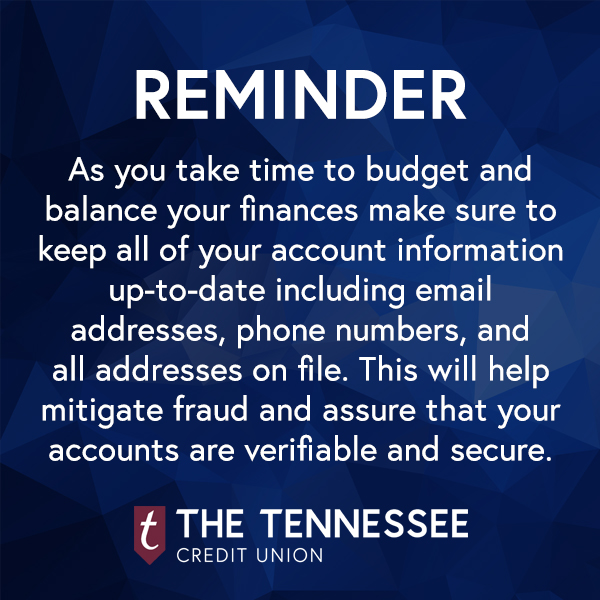COVID-19 SCAMS TO AVOID
Scammers are experts at frequently shifting tactics and changing their messages to catch their victims off guard. This is especially true as they take advantage of anxieties related to the Coronavirus. Here’s are some of the ways fraudsters are trying to take advantage:
Government Check Scams
As Stimulus checks begin to arrive, scammers are taking advantage of the confusion and anxiety around this new process to trick people into handing over their bank account information. They may call pretending to be from the government or your credit union, asking you to verify your bank account for quick delivery of your check, or they might claim to have early access to the checks and offer to deposit the money into your account if you hand over your financial information. The government nor your financial institution will charge a fee to provide you with your stimulus check at a faster expectancy. Keep in mind that the government will NOT ask for personal information including SSN, your bank account information, or your credit card number. Do not share your sensitive information with anyone that you do not know and trust.
COVID-19 Testing and Treatment Scams
With disinfectant, sanitizing, and protective supplies running low, scammers are taking advantage of this industry and creating fake websites and Facebook Marketplace pages to sell fake products in hopes that you buy them. The funds are received and the products are never delivered. Some fake websites are also claiming to have access to at-home COVID-19 test kits or experimental treatment. At this time, there are NO treatments or test kits approved by the FDA for home use. Be wary of ordering supplies online from individuals and unfamiliar retailers.
Medical Emergency Scams
Medical Emergency Scammers will tell you themselves, their child, or their family member in the hospital for a life-threatening ailment and they cannot afford the treatment or bill. This scam is becoming more prevalent with the recent pandemic outbreaks. Be vigilant, confirm the caller, reach out to others who communicate with that person frequently, ask questions that are personal that only you and the loved one would know the answer to.
Fake Charity Scams
During crisis, communities are often eager to help those in need. Scammers know this and will create fake yet similar-sounding names of well-known charities and websites of real charities to steal donations. Make your donation count by doing some research before giving, and always pay with a credit card. Money taken by scammers results in fewer donations to help those in need.
Fake Emails, Texts, and Phishing Scams
The overwhelming amount of news coverage surrounding the coronavirus has created a new danger — email, text, phishing attacks looking to exploit public fears about the sometimes-deadly virus. These files are typically sent via email and often result in the download of a trojan virus that will corrupt your computer and steal sensitive information. Be cautious when opening emails – do not open attachments or links unless you were expecting to receive the message from a familiar sender. Scammers will also use texts and phishing emails to get access to your computer or network. If you click on a link, they can install ransomware or other programs that can lock you out of your data. Scammers often use familiar company names or pretend to be someone you know. Protect your computer by keeping your security software up to date, creating strong passwords, and backing up your data.
 Tips to Avoid Fraud:
Tips to Avoid Fraud:
- Keep your account information up-to-date for your security
- Avoid answering robocalls and calls, text, and emails that seem suspicious
- Do not click on links from unknown emails and texts
- Ignore online offers for home testing kits and vaccinations
- Research before you donate
- Stay in the know about Coronavirus Scams
Do not be a victim • Stay Alert • Stay Informed
For More Information, please visit:
WWW.IRS.GOV/CORONAVIRUS
TTCU THE FRAUD DEPARTMENT AT THE TENNESSEE CREDIT UNION
615-242-6232 OR 800-338-1904

